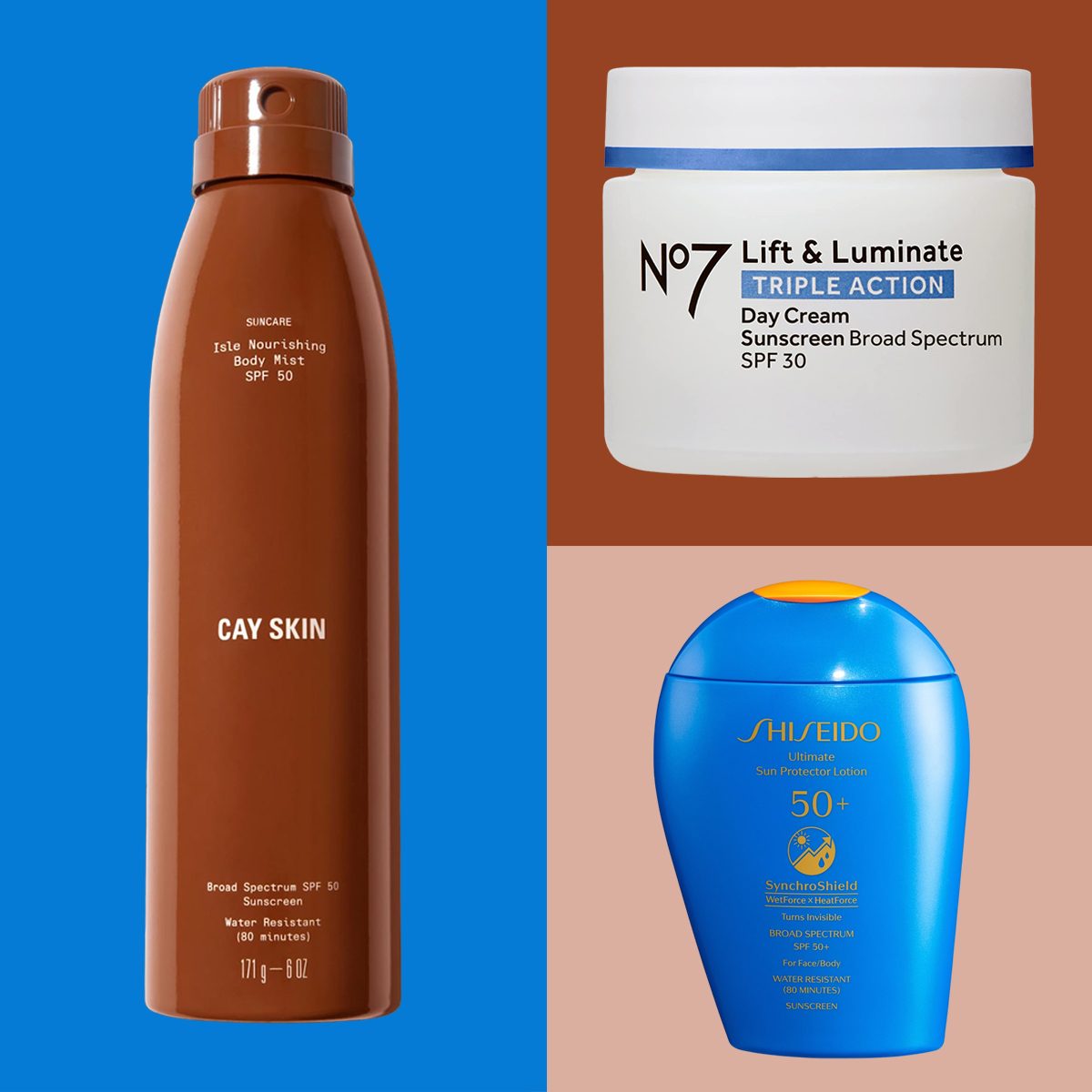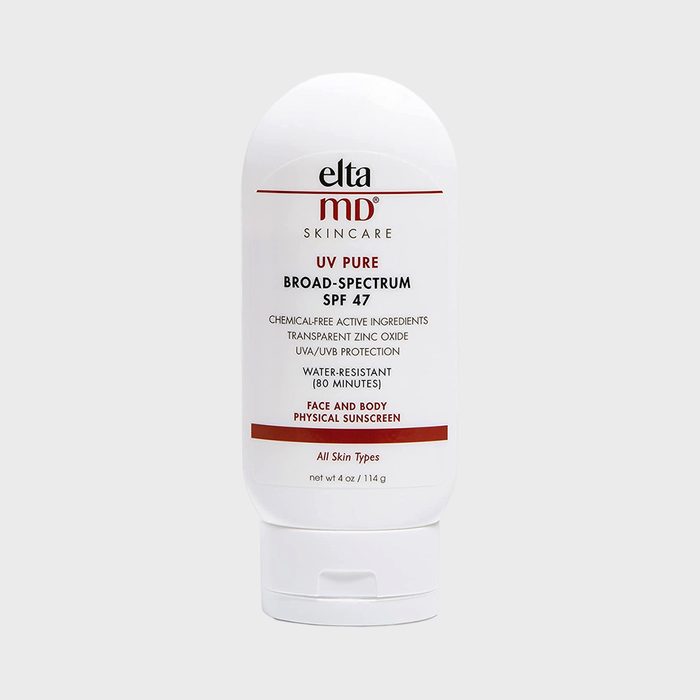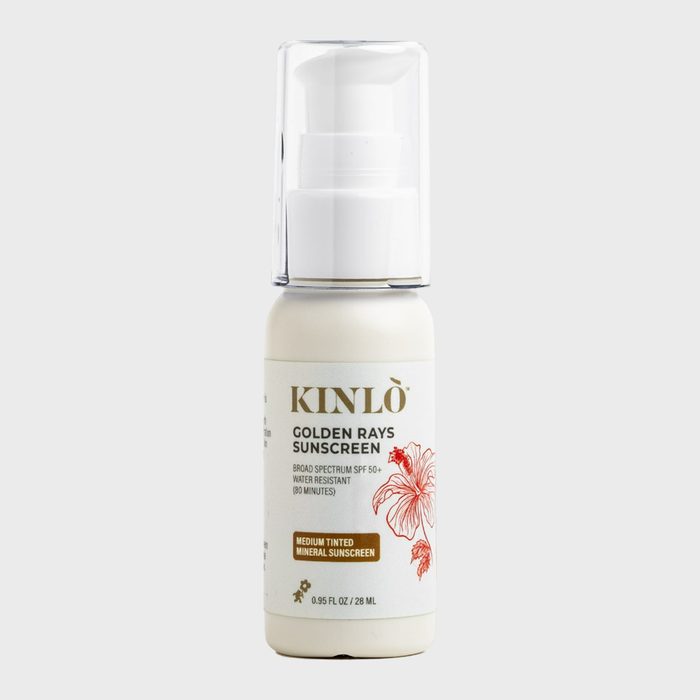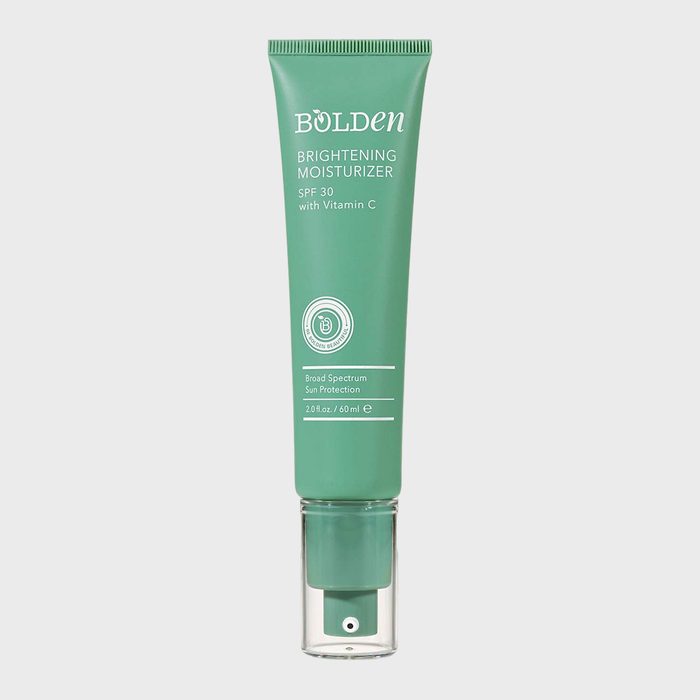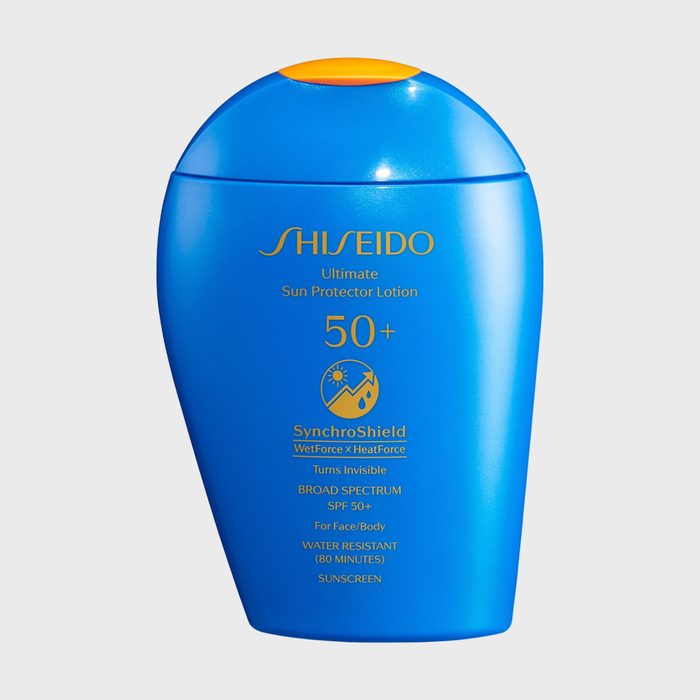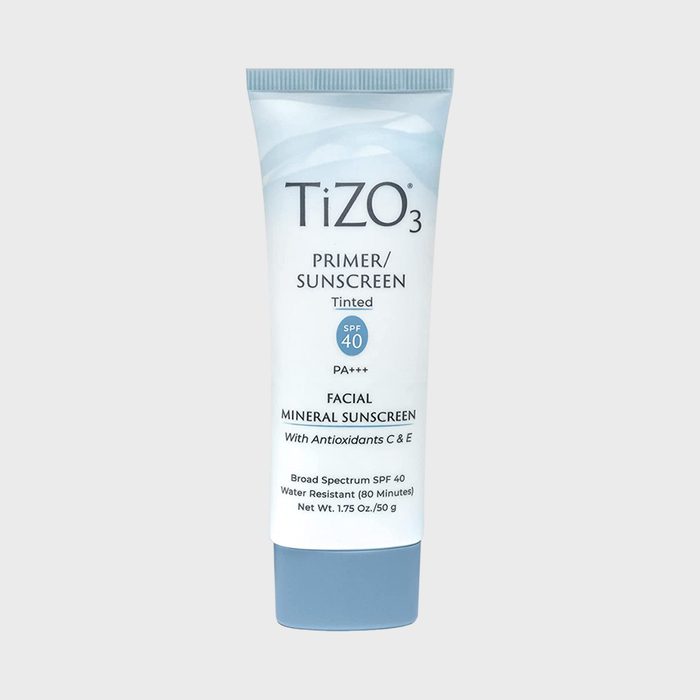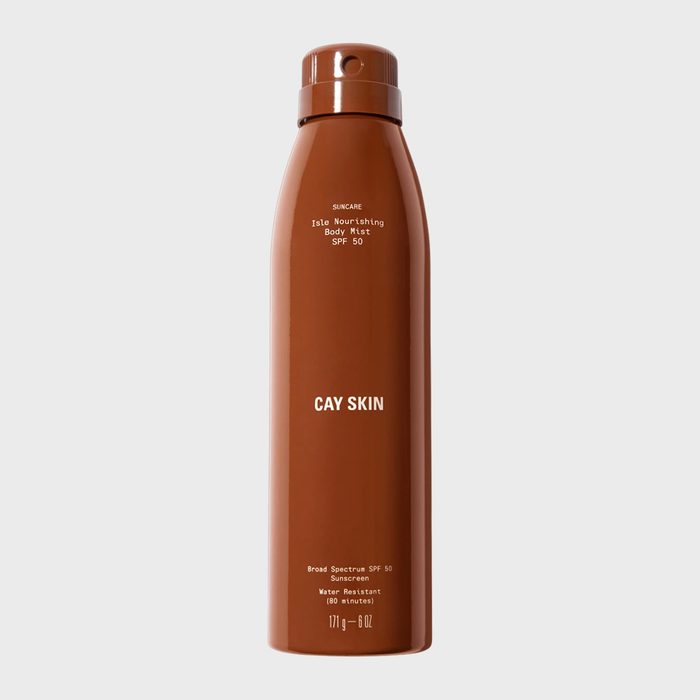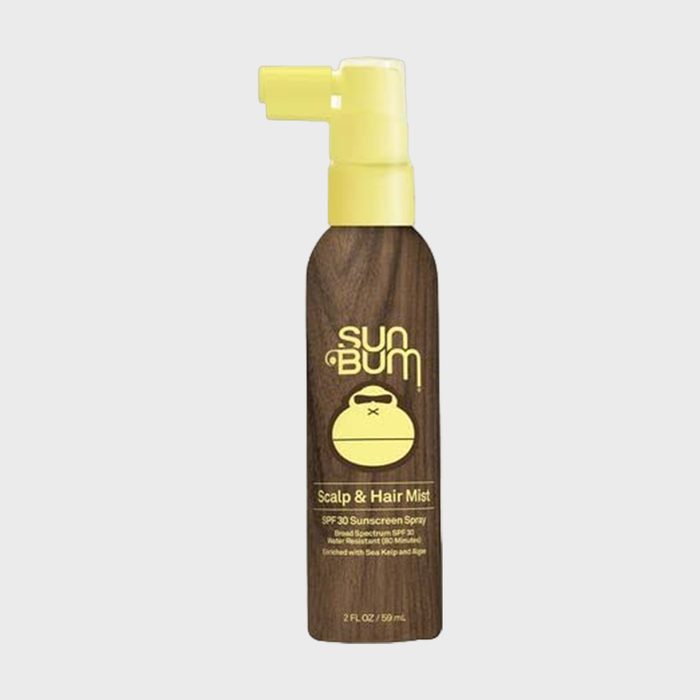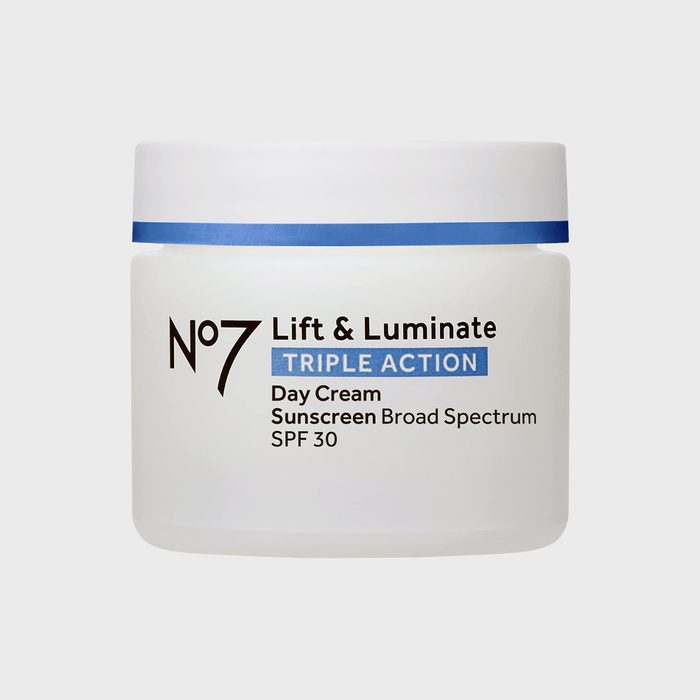via merchant
via merchant
Pros:
-
Formulated with a skin-firming complex to reduce the signs of aging
-
Comes in a fragrance-free option
-
Wallet-friendly
-
SPF 30
-
Over 2,400 Amazon ratings with a 4.6-star average
Cons:
-
Could be too heavy for oily or combination skin
“Because you want to make SPF application as easy to remember as possible, I love recommending my patients a day cream that has SPF in it,” says board-certified dermatologist Dr. Hope Mitchell, MD, FAAD. “One of my favorite chemical sunscreens that I use on my darker skin tone is No7 Lift & Luminate Triple Action, which targets the appearance of pigmentation and brightens for an even-looking skin tone. It also provides a radiant glow with ingredients like vitamin C, hyaluronic acid and matrixyl 3000+, a collagen peptide technology.”
Types of sunscreens for dark skin
- Chemical sunscreen: “Traditionally, people with darker skin tones have gravitated to chemical sunscreens because of their nice absorption into the skin, leaving it without a chalky appearance or heavy feeling,” shares Mitchell.
- Mineral sunscreens: “With the advancement in the formulation of mineral sunscreens, they come widely recommended for people with darker skin tones. Their micronized formulations feature smaller particles that allow better absorption into the skin, leaving less of a white ghostly appearing on the skin,” explains Mitchell.
- Tinted mineral sunscreens: “Tinted mineral sunscreens containing iron oxide are becoming a favorite for many because of the product’s ability to block visible or blue light damage to the skin,” she says. Blocking blue light from our devices is important because, as Mitchell explains, it leads to hyperpigmentation and aging of the skin.
What to consider when buying sunscreens for dark skin
For starters, Dr. Mitchell says finding a formula you actually like and will apply regularly is the first step in finding the perfect SPF match. It’s also pertinent to know the difference between chemical and mineral sunscreen.
“The main difference between chemical and mineral sunscreen is how they protect the skin from the sun’s harmful rays,” explains Mitchell. “Chemical sunscreens use ingredients like avobenzone and octisalate to absorb UV rays before they cause skin damage. Mineral sunscreens use ingredients like titanium dioxide and zinc oxide to block the sun and scatter the rays before they penetrate the skin.”
No matter which formulation you select, Mitchell wants to emphasize all skin tones need to apply SPF daily. The Fitzpatrick classification of skin types ranges from level I (pale white skin: always burns, doesn’t tan) to VI (dark brown or black skin: never burns, always tans darkly).
“Even Fitzpatrick levels IV to VI [need to] wear sunscreen every day to help reduce the risk of developing signs of photoaging such as hyperpigmentation, uneven skin tone and loss of skin elasticity.”
If you’re considering in-office treatments like micro-needling and lasers, along with treating hyperpigmentation and fine lines with active ingredients like retinol and BHAs/AHAs, sun protection is crucial. Mitchell notes that it’s a non-negotiable if you want to avoid reversing results faster than it took to achieve them.
Why you should trust us
As a seasoned freelance beauty and travel writer and creative producer, I bring a wealth of experience to my work. In addition to Reader’s Digest, I regularly contribute to publications such as Byrdie, Who What Wear, People, Essence Magazine and more. When writing this article, I didn’t just rely on research—I also considered my own first-hand experiences with sunscreen for dark skin.
For this piece, I sought expertise from Dr. Hope Mitchell, MD, FAAD, a board-certified dermatologist and the CEO and founder of Mitchell Dermatology. With more than 25 years of experience in the medical field, Dr. Mitchell is a highly qualified dermatologist and entrepreneur.
I also consulted Sarah Akram, a Master Esthetician known for her work with celebrities like Angela Bassett and Mindy Kaling. As the founder of Sarah Akram Skincare, she blends modern technology with all-natural products to deliver tailored skincare solutions to her clientele.
How we found the best sunscreens for dark skin
To identify the best sunscreens for dark skin, we researched hundreds of options, considering various types, costs and ingredients. Next, we consulted with two sunscreen experts to pinpoint the key factors that make certain sunscreens ideal for dark skin tones, highlighting both budget-friendly and splurge-worthy brands. Lastly, we analyzed user reviews to understand firsthand experiences and feedback on these products.
FAQ
Does dark skin need higher SPF?
“Melanated skin has a natural protection factor of up to SPF 13 compared to that in white skin, which is reported to have an SPF 3.4,” notes Mitchell. Even with natural protection, she says the best sunscreens for dark skin are SPF 30 to 40.
Is SPF 70 enough for black skin?
“SPF stands for sun protection factor,” says Mitchell. “The number indicates how long the sun’s UVB radiation would take to burn skin when using the product as directed vs. the amount of time with no sunscreen. So, if you’re wearing SPF 30, it would take 30 times longer for skin to burn than without sunscreen,” she explains.
With that said, she notes that SPF 30 blocks 97% of the sun’s harmful UV rays, while SPF 50 blocks 98%. “So, applying a higher SPF than 50 does not provide much additional protection for any skin type,” she says. However, reapplying protection every two hours, especially if you’re spending a lot of time in direct sunlight, is key.
Can black skin get sunburned?
The short answer is absolutely yes. Here’s why. “Even though people with darker skin types won’t burn quite as quickly, they are still at risk for skin damage and photoaging. They should take preventative measures to minimize those risks,” shares Mitchell. She also says there is another important reason beyond sunburn to protect the skin: skin cancer.
“Because of misinformation about applying sunscreen to darker skin, skin cancer, like squamous cell carcinoma, in darker skin tones is often detected at later stages—and as we know with skin health, prevention is key,” she says. “Regular sunscreen use, paired with annual skin health checks from a board-certified dermatologist, is very important.”







